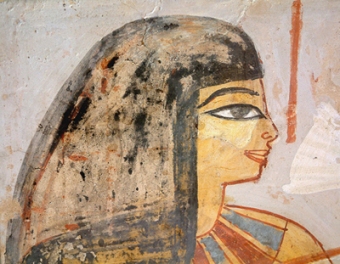| NSPM in English | |||
Fear and Exhilaration in America |
 |
 |
 |
| среда, 09. фебруар 2011. | |
|
(The National Interest, February 7, 2011)
Chaos in Cairo’s streets has wrecked Hosni Mubarak’s presidency. The collapse of any dictatorship should please Americans. One of the world’s most durable dictators is being tossed into history’s dustbin. However, the process in Egypt has only started. The most difficult question always is how any so-called revolution ends. Tragically, revolts against repressive regimes often lead to even greater tyranny: consider the French, Russian, Chinese, and Iranian revolutions. The American experience to the contrary is almost unique in history. Moreover, Mubarak long has been a key Washington ally. U.S. policymakers used to “doing business” with his regime fear that any government arising from the street will be more hostile to America, as well as Israel, which seems to matter almost as much to many U.S. policy-makers. For instance, potential GOP presidential candidate Michael Huckabee lamented that the Obama administration had done too little to support Egypt’s dictator. Yet Uncle Sam today is little more than an interested bystander in Egypt. The Obama administration has stumbled along, first standing by Mubarak, then issuing platitudes about reform, and finally pressing for a peaceful “transition.” But Washington’s opinion simply doesn’t matter much. Observed Jon Alterman of the Center for Strategic and International Studies: “neither the protestors nor the government are relying on signals from the United States.”
Regime elites, including top commanders in the army, may care more about Washington’s opinion, but survival is their first priority. Gamal Mubarak, Hosni’s son and one-time presumed heir, is not the only member of the ruling establishment reported to flee overseas. Indeed, for members of the regime to stay in Cairo is to risk life as well as any ill-gotten gains. Unfortunately, the U.S. has no good options. Washington has been attempting to influence events in Egypt for decades. Once an ally of the Soviet Union, Cairo shifted to America’s side and made peace with Israel. Mubarak promoted U.S. foreign policy objectives in return for American acquiescence in his oppressive policies at home as well as bribes thinly disguised as aid, about $60 billion worth over the past three decades. Long identified with Mubarak, Washington needs to try to separate itself from his regime and demonstrate that it cares more for the hopes of Egypt’s people than the power of Egypt’s elite. Even the Bush administration never pushed its celebrated support for democracy very hard, preferring perceived stability to opening a possible Islamic Pandora’s Box. The Obama administration has only been slowly edging in the democratic direction, worrying about future of authoritarian allies in Jordan, Yemen, and elsewhere. However, going further and attempting to promote particular individuals or factions is likely to be counterproductive. Having chosen wrong for so long, Washington is unlikely to choose right this time. U.S. policymakers have never demonstrated the necessary knowledge, foresight, and wisdom. More important, the U.S. government has no credibility even if anyone in Cairo was inclined to listen to those who previously embraced Mubarak so tightly. In Lebanon Druze leader Walid Jumblatt recently joined with Hezbollah to oust the government backed by Washington. He observed: “Why should we follow American advice in the name of democracy? They have nothing to teach us when they have supported dictators.” In Egypt today U.S. backing would be more likely to discredit than advantage friendly politicians. Thus, the Obama administration has little choice but to watch from Egypt’s sidelines, while preparing to deal with whatever replaces the Mubarak regime. Much ink has been spilled on Egypt’s alleged geopolitical importance. However that country matters far less today than during the Cold War. Having an allied government in Cairo is helpful, not vital. A new government might reduce or end anti-terrorism cooperation, though even a government headed by the Muslim Brotherhood would be unlikely to support attacks on the U.S. If a radical regime closed the Suez Canal it would risk dooming itself by cutting foreign revenue needed to pacify an angry population. Some Americans worry about Israel, placing concern for its security on par or even above that of America. For instance, Michael Huckabee, in Israel to celebrate construction of another illegal settlement on Palestinian territory, cited “real shock and surprise down to the average, on-the-street Israeli citizen at how quickly the Obama administration abandoned a 30-year-ally.” But if a new Egyptian government was foolish enough to attack Israel Cairo likely would become another occupied territory—and perhaps home to its own Israeli settlements, also to be promoted by Huckabee. Thus, while adapting current policies towards fast-moving events in Egypt, the Obama administration should begin a longer-term transformation. The U.S. government should back away from attempting to micro-manage politics in Egypt or other foreign nations. Americans should support democracy and a liberal society in the best sense of the word. But U.S. officials should not be in the business of attempting to bolster or oust even authoritarian governments. Washington has a long history of supporting foreign thugs to advance perceived geopolitical interests. Sometimes horrible choices must be made, such as allying with Joseph Stalin against Adolf Hitler. In most cases, however, the interests being advanced are not worth the moral price of underwriting brutal repression. For instance, former Reagan official Daniel Oliver declared: “however great the interest of the Egyptian people in their own freedom and human rights, it is eclipsed, even if they don’t realize it, by the national security interest of the United States.” It is hard to imagine what cause short of national survival could warrant Americans keeping the Egyptian people in chains for the benefit of America. And such a policy would ensure enduring hostility, since the Egyptian people would be unlikely to view their “freedom and human rights” as mere incidentals to be tossed aside at Washington’s behest. Thus, even when the U.S. government is successful in buying authoritarian friends, it inevitably makes enemies, many of whom have long memories. When such regimes ultimately collapse, as in Iran, the results are not pretty. Tehran now is perhaps Washington’s global enemy number one, a predictable outgrowth of Washington’s quarter century of support for the Shah’s despotic rule. The U.S. faces a similar threat in Egypt. Attempting to forcibly reform, or even overthrow, repressive regimes is more satisfying morally. But the outcome is not necessarily more positive. It is far easier to blow up a society than put it back together. Look at Iraq, 200,000 civilian deaths after America’s ill-considered invasion. The Mubarak government long has used the threat of Islamic radicalism in the form of the Muslim Brotherhood to win U.S. support. That possibility seems exaggerated, but it illustrates a real dilemma: democracy often yields regimes hostile to Washington. The U.S. government pressed for elections in the Palestinian territories, which propelled Hamas to power in the Gaza Strip in 2006. Washington then refused to recognize the result, adding hypocrisy to stupidity. U.S. policy in Lebanon has similarly run aground on the shoal of Hezbollah’s popularity. And abrupt changes of regime are more likely to result in violence and repression. While Washington should not oppose democratic movements even if they seem less likely to promote U.S. geopolitical interests, the U.S. government should not actively spur revolution. American policymakers lack the wisdom, as well as practical control over events once set in motion, necessary for any attempt at social engineering in other societies. Washington simply doesn’t know how to get there or even where “there” is. That certainly is the case in Egypt, where possible outcomes include direct military rule, domination by Islamist groups, such as the Muslim Brotherhood, a reformulated authoritarian regime, or real democracy. The fact that most Americans presumably would prefer the latter does not mean the U.S. government can make it happen. Sen. John McCain, the GOP’s 2008 presidential nominee, said the U.S. “must do a better job of encouraging democracy” in the Middle East. But how? There is much discussion about what “we” should do. But this assumes an illusory world in which Washington can simply tell everyone else what to do. Even in pushing for the liberal ideal American officials risk doing more harm than good. Washington likely will be blamed for whatever results. Notes Robert Malley of the International Crisis Group: “Every time we open our mouths, it runs a risk of hurting the objective we’re pursuing.” Better for the U.S. government to disengage, leaving Egypt’s course in the hands of Egyptians. Advocate respect for human rights and democracy, and then shut up. The less said by Washington about what the U.S. government desires, the better. The Egyptian people deserve liberation. Unfortunately, history suggests that it will take more than street demonstrations to create a free society. Rather than attempt to dictate outcomes in foreign nations, Washington should recognize the limitations on its ability to influence events, and even more important, to influence events positively. Americans outside of government can do more to promote the principles of liberty and the national culture in which those principles are most likely to ultimately flourish. We all would benefit if the U.S. adopted the sort of “humble” foreign policy that President George W. Bush originally advocated. Doug Bandow is a Senior Fellow at the Cato Institute. A former Special Assistant to President Ronald Reagan, he is the author of several books, including Foreign Follies: America’s New Global Empire (Xulon) |
Од истог аутора
- France Falls Again
- The End of Nonproliferation
- Riyadh Scores One for Tehran
- Conservatives for Empire
- Departing Europe
- Bankrupt Empire
- Europe Doesn’t Matter
- Ukraine’s Counterrevolution
- A War We Can’t Afford
- Holier Than Thou
- Guns & Butter
- The China Syndrome
- More Friends, More War
- The Russian Hangover
- Playing with fire
Остали чланци у рубрици
- Playing With Fire in Ukraine
- Kosovo as a res extra commercium and the alchemy of colonization
- The Balkans XX years after NATO aggression: the case of the Republic of Srpska – past, present and future
- Из архиве - Remarks Before the Foreign Affairs Committee of the European Parliament
- Dysfunction in the Balkans - Can the Post-Yugoslav Settlement Survive?
- Serbia’s latest would-be savior is a modernizer, a strongman - or both
- Why the Ukraine Crisis Is the West’s Fault
- The Ghosts of World War I Circle over Ukraine
- Nato's action plan in Ukraine is right out of Dr Strangelove
- Why Yanukovych Said No to Europe

.jpg)








 Abrupt changes in regime—be they thanks to an outside force or a revolution from below—can do more harm than good
Abrupt changes in regime—be they thanks to an outside force or a revolution from below—can do more harm than good The Egyptian crowds seeking to oust Mubarak have no interest in what the U.S. desires. Indeed, many were angered by the administration’s original refusal, highlighted by Vice President Joe Biden’s reluctance to call Mubarak a dictator, to stand by the Egyptian people. Washington’s popular reputation, already low, fell even further. Alterman warned: “I don’t think there’s anything the U.S. can say or do that would change” the perception of U.S. backing for the Mubarak government.
The Egyptian crowds seeking to oust Mubarak have no interest in what the U.S. desires. Indeed, many were angered by the administration’s original refusal, highlighted by Vice President Joe Biden’s reluctance to call Mubarak a dictator, to stand by the Egyptian people. Washington’s popular reputation, already low, fell even further. Alterman warned: “I don’t think there’s anything the U.S. can say or do that would change” the perception of U.S. backing for the Mubarak government.









